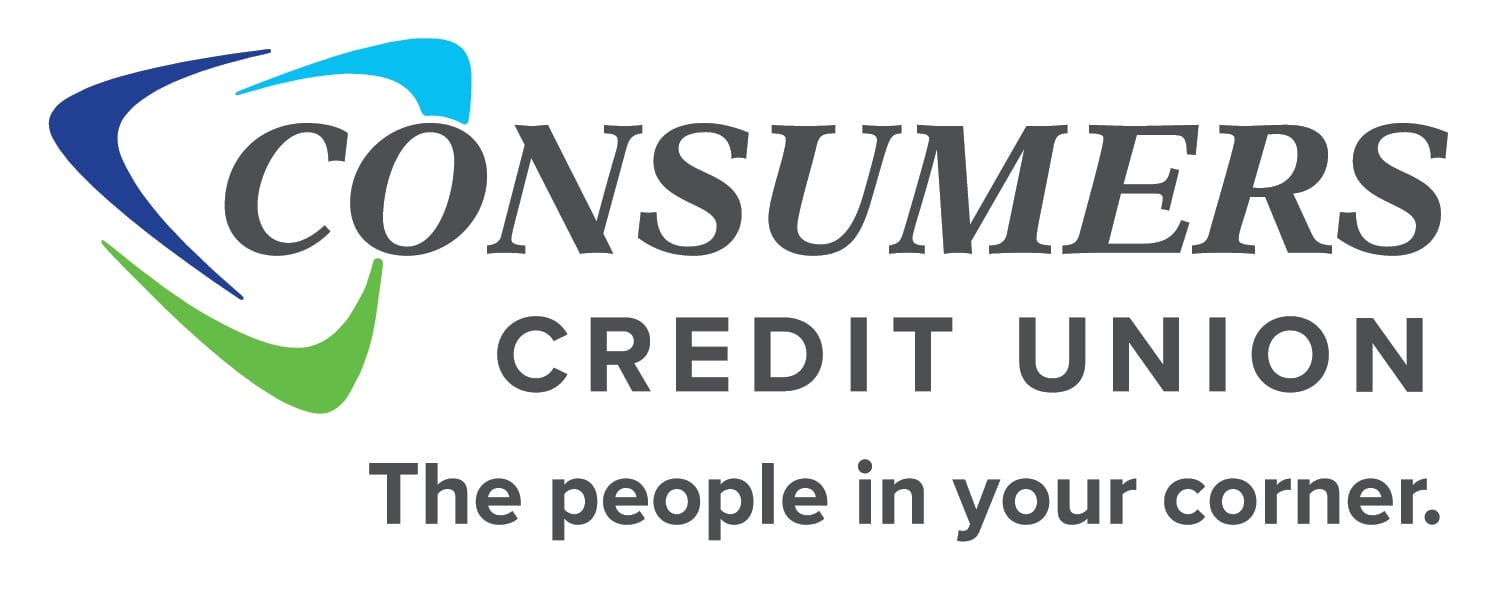Best Credit Unions for Business Accounts in 2025
Find out what credit unions you're eligible to join, then compare their business checking account offerings.

Many, or all, of the products featured on this page are from our advertising partners who compensate us when you take certain actions on our website or click to take an action on their website. However, this does not influence our evaluations. Our opinions are our own. Here is a list of our partners and here's how we make money.
Doing your business banking with a credit union can be a good choice if there are locations near you and you can qualify to join. Credit unions are nonprofit, membership-based financial institutions that often get high marks for customer satisfaction compared with small-business banks.
The credit unions on our list below are broadly available — you may be eligible to join some after making a donation to a nonprofit, for instance. To explore other credit unions in your area, visit MyCreditUnion.gov.
Looking for a business checking account?
See our overall favorites, or choose your business type to find the best options for you.
Summary of the best credit unions for business accounts
| Digital Federal Credit Union: Best for free, interest-bearing business checking
| |
| Navy Federal Credit Union: Best for veterans and military members
| |
| First Tech Credit Union: Best for unlimited transactions
| |
| Blue Federal Credit Union: Best for easy-to-access membership
| |
| America First Credit Union: Best for the Mountain West
| |
| Consumers Credit Union: Best for businesses in Illinois and Wisconsin
|
Digital Federal Credit Union
How to join: Donate to a participating organization
Digital Federal Credit Union, or DCU, is headquartered in Massachusetts. DCU offers just one business checking account, which is free and interest-bearing. And while its APY — up to 0.10% — is quite low, most free business checking accounts offer no APY at all.
⚖️ COMPARE MORE: NerdWallet's best online business checking accounts
Who qualifies for membership
DCU membership is available to employees of participating employers; residents of certain Massachusetts or New Hampshire cities or condo associations; and family members of current credit union members. But you can also join by donating to a number of participating organizations, such as the Free Software Foundation. Find complete eligibility details on DCU’s website.
Branches and ATMs
DCU has branches in Massachusetts and New Hampshire. You can apply for a business account in person or by mail, fax or email. DCU has partnered with the Allpoint, SUM and CO-OP networks to offer free access to more than 80,000 ATMs, with rebates available for out-of-network surcharges depending on your credit union membership level.
Business account details
DCU offers a free business checking account. It includes no maintenance fees or minimum balance and offers an annual percentage yield of up to 0.10% as of this writing. You can make up to 20 free deposits each day, with additional transactions costing 10 cents apiece. There’s no limit on the number of checks you can write.
Additional business services
DCU has a business savings account, money market account and certificate of deposit options. It also offers a business Visa credit card and business loans, including term loans and lines of credit, in certain New England states.
Navy Federal Credit Union
How to join: Have a military affiliation
Navy Federal Credit Union is the largest federally insured credit union by total members and assets, according to the most recent data from the National Credit Union Administration. Its business accounts are great options and the credit union offers 24/7 customer support. You'll need to be a veteran or have another military or Department of Defense affiliation to join.
🤓 Nerdy Tip
Two other large military-affiliated credit unions, USAA and PenFed, don’t offer business bank accounts. Navy Fed is a great alternative for entrepreneur members of those credit unions, but here are our other suggestions: USAA business account alternatives | PenFed business account alternatives. Who qualifies for membership
Navy Federal Credit Union serves veterans and current and retired members of the armed forces, Department of Defense and National Guard, plus their families. You must be a Navy Federal Business Solutions member to open a business account. You can start that application online, but you’ll need to complete the process over the phone.
Branches and ATMs
Navy Federal has branches in 30 states, Washington, D.C., and multiple countries abroad. It is also part of the CO-OP ATM network.
Business account details
Navy Federal offers three business checking accounts. Each has unlimited electronic deposits, but limits your nonelectronic transactions monthly. Its highest tier — Business Premium Checking — offers 100 fee-free transactions and charges a $20 monthly service fee, which can be waived with an average daily balance of $5,000. That account also offers interest rates from 0.35% to 0.45% APY as of this writing.
Additional business services
Navy Federal offers two money market business savings accounts and business certificates of deposit. You can also select either a Visa or Mastercard business credit card. Multiple types of business loans, including business lines of credit and term loans, are available, as well.
First Tech Federal Credit Union
How to join: Donate to a participating organization
First Tech Federal Credit Union is headquartered in Oregon. It offers two business checking accounts that require a $100 opening deposit, but neither has a transaction cap. That may make First Tech a good option if you run a high-volume business. Plus, through the CO-OP Shared Branch network, you’ll have access to 5,600 branches around the country. You can qualify for eligibility by joining certain nonprofits or professional associations.
🏦 MORE: Best business banks for startups
Who qualifies for membership
First Tech primarily serves workers in the tech industry, but you can become eligible by joining the Computer History Museum or Financial Fitness Association. Visit the First Tech website for complete details.
Branches and ATMs
First Tech Federal Credit Union has locations in eight states, with most in California, Oregon and Washington. You’ll need to make an appointment — in person or over the phone — to open a business account. First Tech participates in the CO-OP Shared Branch and ATM networks.
Business account details
First Tech’s Simple Business Checking charges a $6 monthly fee if your balance falls below $1,000. Its Business Dividend Checking increases that fee to $15 if your balance falls below $5,000. And while that is technically an interest-bearing account, its APY sits at 0% as of this writing.
Additional business services
First Tech offers certificates of deposit, two business savings accounts and commercial real estate loans.
Blue Federal Credit Union
How to join: Donate to the Blue Foundation
Blue Federal Credit Union is located in Colorado and Wyoming, but the credit union participates in the CO-OP Shared Branch network. That means you can do your business banking in person at more than 5,600 locations nationwide even if you don’t live near a Blue branch. You can join this credit union with just $10 — $5 to set up your membership and $5 to donate to the affiliated foundation.
⚖️ COMPARE MORE: NerdWallet's best free business checking accounts
Who qualifies for membership
Anyone can join Blue Federal Credit Union by paying $5 to set up your membership and donating $5 to the Blue Foundation, which describes itself as an “independent 501(c)(3) nonprofit charitable organization founded to champion, fund and celebrate local nonprofit causes.” Additional ways to qualify can be found on Blue’s website.
Branches and ATMs
Blue has branches in Colorado and Wyoming. You’ll need to make an appointment (in-person, over the phone or virtual) to open a business account. Blue participates in the CO-OP ATM network, which offers fee-free access to almost 30,000 ATMs nationwide.
Business account details
Blue’s Basic Business Checking is a free account that includes 50 deposits monthly. Its Business Plus Checking doubles that fee-free deposit total to 100 and requires $100 to open. Business Plus Checking charges $5 monthly, but you can waive that fee — and earn 0.25% APY interest, as of this writing — by maintaining a balance of at least $1,500.
Additional business services
Blue offers a business savings account and term shares, which are similar to certificates of deposit. It is also part of Centennial Lending, through which Blue members in nine states can access business and personal loan products.
Consumers Credit Union
How to join: Do business in Illinois or Wisconsin
Consumers Credit Union is an Illinois-based credit union that anyone can easily join, making it one of the best credit unions for personal banking. However, its business accounts have stricter qualifications: You must do business or operate your nonprofit in Illinois or Wisconsin to be eligible and apply in person.
🤓 Nerdy Tip
Banks and credit unions may offer nonprofits special accounts, or fee-free or low-fee access to certain higher-tier business accounts. Explore NerdWallet’s best banks for nonprofits alongside your credit union. Who qualifies for membership
Anyone can join Consumers Credit Union by making a $5 donation to the Consumers Cooperative Association, a decades-old organization that “provides an associational common bond for Consumers Credit Union,” according to its website. But business banking services are only available to companies and nonprofits that do business in Illinois or Wisconsin.
Branches and ATMs
Consumers has more than a dozen branches in Illinois, and you must apply in person to open a business account. Consumers also participates in the CO-OP Shared Branch and ATM networks.
Business account details
Consumers Credit Union offers four business checking accounts, including free and interest-bearing options. Its free Community Checking account serves eligible nonprofits, offering 300 fee-free transactions — 200 more than Consumers’ basic free account. Extra transactions cost 25 cents apiece for all Consumers accounts.
Additional business services
Consumers offers a business savings account that doesn’t require a minimum balance if you have a business checking account. The credit union also has a money market savings account; multiple Visa business credit cards; and commercial mortgages, business lines of credit and equipment financing.
America First Credit Union
How to join: Be a resident of certain areas of Arizona, Idaho, Nevada, New Mexico or Utah
America First Credit Union was originally founded in Utah and now has branches in that state plus Arizona, Idaho, Nevada and New Mexico. The credit union offers four business checking accounts, but its Basic Business Checking stands out with no monthly fee and a large fee-free monthly transaction limit of 250. Each transaction after that costs 15 cents.
Who qualifies for membership
You can join America First Credit Union by living within certain areas in Arizona, Idaho, Nevada, New Mexico and Utah. Other membership criteria include being related to a current member or working for an affiliated organization. Visit their website for complete details.
Branches and ATMs
America First has 120 full-service branches across four states and is part of the CO-OP ATM network. You can apply online for an America First business account.
Business account details
America First Basic Business Checking and Nonprofit Business Checking don’t have monthly fees, while Premier Business Checking charges $8 and High-Yield Business Checking costs $50. The nonprofit and high-yield accounts interest, albeit at low rates (up to 0.30% APY for balances over $1 million as of this writing).
Additional business services
America First offers multiple types of business savings accounts, including a money market account and business certificates of deposit. You can also get secured and unsecured business loans from the credit union, including lines of credit and business auto loans.
How to choose a credit union for your business or nonprofit
If you’re considering a credit union business account, the following questions can help you decide which is the best fit for you.
- Can you join? Credit unions are membership-based organizations, so you’ll have to be eligible to bank with one. Some credit unions have fairly relaxed requirements — such as making a small donation to a specific organization. But many others limit their eligibility pool to those who live in a certain area, work for a specific employer or are related to someone who meets those criteria.
- How will you bank? If you’re not joining your neighborhood credit union, you’ll still want easy access to your money. Check that the credit union participates in ATM- or branch-sharing networks with locations near you and offers an app with services like e-deposit and bill pay. Some credit unions have smaller footprints — including online — and may require an in-person visit to set up your business account or prevent you from opening an account if your business is outside their geographic domain.
- Do its features stack up? Credit unions may emphasize customer service more than traditional banks. But make sure a credit union’s specific business account has benefits that stand out for you, especially if you opt for a provider that isn’t convenient. If you won’t bank much in person, look at online business checking accounts as well because they may offer even lower fees or better rates.
- What other products are available? Some business owners prefer to bank with a single financial institution. If that’s your goal, make sure the credit union you choose offers business solutions for your immediate and future needs. For example, you’ll likely need small-business financing at some point. By building a relationship with a credit union now, your chances of getting a loan down the line may improve.
Article sources
NerdWallet writers are subject matter authorities who use primary,
trustworthy sources to inform their work, including peer-reviewed
studies, government websites, academic research and interviews with
industry experts. All content is fact-checked for accuracy, timeliness
and relevance. You can learn more about NerdWallet's high
standards for journalism by reading our
editorial guidelines.
Methodology
NerdWallet’s writers and editors evaluate more than 60 business bank accounts from national, regional and online banks. Collectively, these accounts represent the largest banks by assets and the largest credit unions by membership, along with notable and emerging fintech companies and online banks.
We consider more than 20 data points for each account, including services, fees, features and rewards. We gather this information from rates and fees documents, deposit account agreements, financial institution websites and company representatives.
Our editorial team regularly reviews and updates our data to ensure consistency and accuracy. We also update our scoring on an ongoing basis to reflect changing industry norms and business owner needs. For instance, in 2026, we adjusted our expectations for APYs due to falling interest rates.
Final ratings range from one to five stars. A five-star score represents the best available product for the largest number of business owners. Learn more about how we rate business checking accounts.
Related articles













